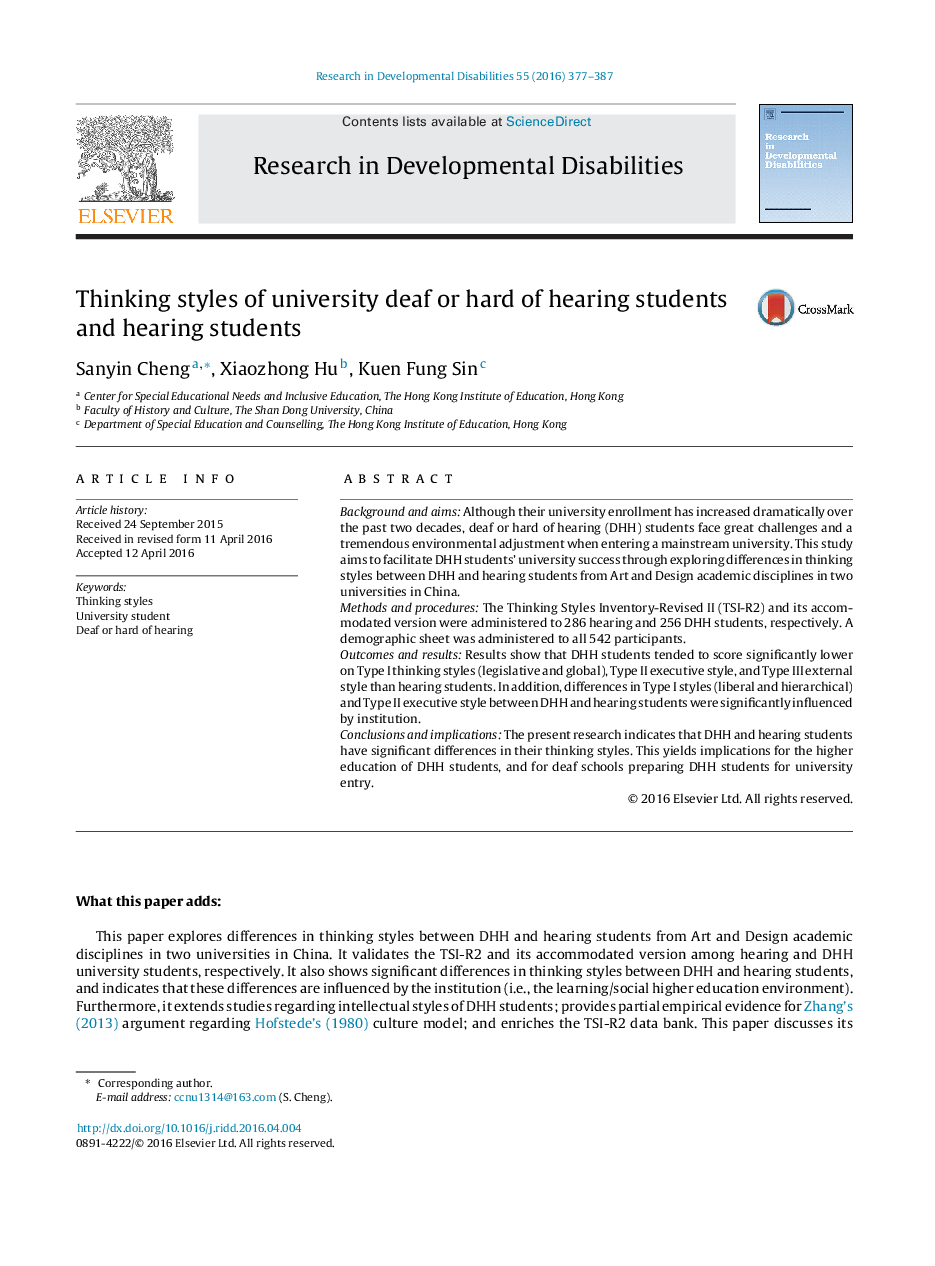| Article ID | Journal | Published Year | Pages | File Type |
|---|---|---|---|---|
| 371102 | Research in Developmental Disabilities | 2016 | 11 Pages |
•Intellectual styles refer to individuals’ preferred ways of processing information and dealing with tasks.•Results showed that the Thinking Styles Inventory-Revised II was reliable and valid among DHH (deaf or hard of hearing) and hearing students.•DHH students tended to score lower on Type I thinking styles (legislative and global), Type II executive style, and Type III external style than hearing students.•Differences in Type I styles (liberal and hierarchical) and Type II executive style between DHH and hearing students were significantly influenced by institution.
Background and aimsAlthough their university enrollment has increased dramatically over the past two decades, deaf or hard of hearing (DHH) students face great challenges and a tremendous environmental adjustment when entering a mainstream university. This study aims to facilitate DHH students’ university success through exploring differences in thinking styles between DHH and hearing students from Art and Design academic disciplines in two universities in China.Methods and proceduresThe Thinking Styles Inventory-Revised II (TSI-R2) and its accommodated version were administered to 286 hearing and 256 DHH students, respectively. A demographic sheet was administered to all 542 participants.Outcomes and resultsResults show that DHH students tended to score significantly lower on Type I thinking styles (legislative and global), Type II executive style, and Type III external style than hearing students. In addition, differences in Type I styles (liberal and hierarchical) and Type II executive style between DHH and hearing students were significantly influenced by institution.Conclusions and implicationsThe present research indicates that DHH and hearing students have significant differences in their thinking styles. This yields implications for the higher education of DHH students, and for deaf schools preparing DHH students for university entry.
